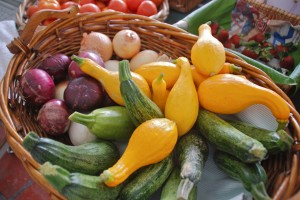2012 World Food Day is dedicated to Agricultural Cooperatives
 Today marks the 31st World Food Day, dedicated to raising awareness of the problems facing global food supply. The importance of food security cannot be overestimated: it is predicted that by 2050, the global demand for food will increase by a staggering 70%.
Today marks the 31st World Food Day, dedicated to raising awareness of the problems facing global food supply. The importance of food security cannot be overestimated: it is predicted that by 2050, the global demand for food will increase by a staggering 70%.
The theme of this year’s World Food Day isAgricultural cooperatives. The World Food Day pays attention to the importance of cooperatives in the global food security and the efforts for eliminating hunger.
For those of you who do not know, cooperatives are a type of social enterprise. They aim at fulfilling the needs of its members and also at gaining profit and stability.
The Problem
Today, the hunger problem is obvious. It is estimated that almost 15% of all people in the world are undernourished. Nevertheless, global economies have the means to stabilize the situation. However, in order that to happen there must be organized cooperatives, rural institutions and producer organizations.
- Further reading: Poverty and widening inequality reach record highs
Cooperatives can provide small farmers and other producers with all the information, services and tools they need to multiply and market their production and create job positions. Cooperatives gather small famers together and it that way they give them a stronger position on the market.
What Cooperatives Can Give
The first thing that cooperatives can give to their members is many useful services like information, training, technology and natural resources. In addition, these organizations offer some institutional arrangements like certain land rights and access to productive assets and various markets. Also, cooperatives help small producers to gain more skills and acquire useful knowledge which can benefit their business. However, the most important thing about producer organizations is that they allow producers to share their thoughts and opinions.
Cooperatives Everywhere
Cooperatives are not created only to suit the needs of the agricultural industry. These organizations work also in sectors like finance, insurance, health care and many more. Moreover, there are over 1 billion people who are members of some cooperative.
The Key to Success
In order cooperatives to be successful, they need to form relationships with other parties and organizations. In that way they can gain priorities, which small farmers cannot, like access to more markets and bargaining power.
Governments also have an important role in the work of the cooperatives. They oversee whether or not the policies fit their ideas. However, producer organizations can manage their practices alone with their own laws of limited application.
Such organizations have been around for some time. In many developing and developed countries there are producer organizations that have managed to help and assist small producers. But these cooperatives are often too small or focused only on a particular area of an industrial sector. In order these organizations to be successful on a larger scale, stakeholders need to join their powers. In addition, they need to clearly set their responsibilities and roles so that the organization can grow and develop.
Today, over 925 million people suffer undernourishment. 70% of them live in the rural areas where agriculture is that backbone of the local economy. The 2012 World Food Day will try to help cooperatives to defeat all limitations. In that way hunger can become part of the past.
In UAE, the number of cooperatives and producer organizations is slowly growing. Thanks to them the net profit in the food sector in Dubai continues to grow despite the challenges in the global food industry. In addition, cooperatives have a main role in the increasing number of fishermen and fish catch in the country.



































